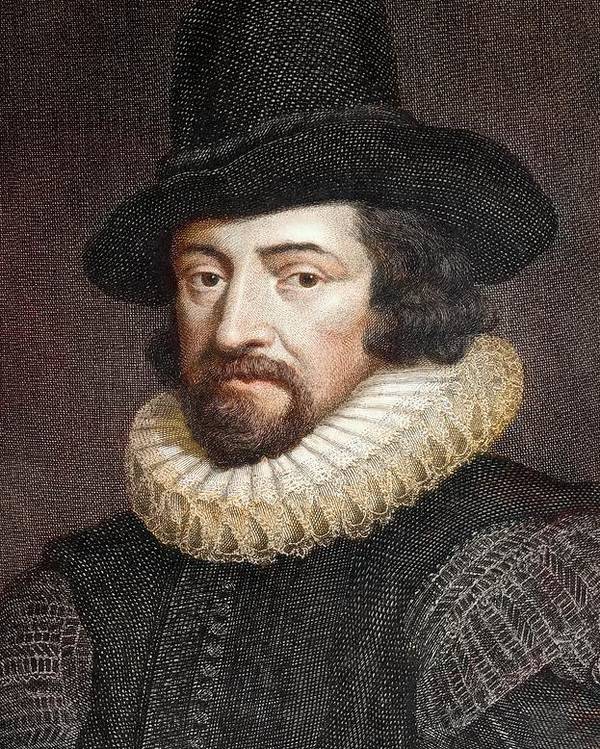Sir Francis Bacon an English writer of the Renaissance period, also known as Lord Verulam, held the positions of Attorney General and Lord Chancellor of England during the reign of King James I. Francis Bacon was proficient in both Latin and English languages. He followed both methods, natural philosophy, and scientific method. His works remained influential even in the late stages of the Scientific Revolution.
The Scientific Revolution was a period of intellectual and scientific advancements that occurred in Europe from the late 16th century to the 18th century. During this transformative era, there was a significant shift in the way people approached and understood the natural world. Key features of the Scientific Revolution included the development of the scientific method, the promotion of practical observation and experimentation, the rejection of traditional, dogmatic beliefs, and the emergence of new theories and discoveries in various scientific fields such as physics, astronomy, biology, and chemistry. Prominent figures like Galileo Galilei, Johannes Kepler, Isaac Newton, and Francis Bacon played pivotal roles in shaping this period of enlightenment and laying the foundation for modern science.
Bacon has been called the father of Empiricism. Empiricism is a philosophical and epistemological theory that emphasizes the importance of sensory experience and observation. This means that individuals acquire information and understanding through their senses, such as seeing, hearing, touching, tasting, and smelling. Empiricism stands in contrast to rationalism. John Locke, Francis Bacon, and David Hume are known as the fathers of Empiricism philosophy.
Bacon was a polymath with a diverse range of talents and interests. He was not only a writer, philosopher, lawyer, and scientist but also held the position of a statesman. He is perhaps best known for his essays, which have left a lasting impact on the world of literature and philosophy. And become the Father of English Essays. Bacon drew inspiration for his essays from Michel de Montaigne, widely regarded as one of the most important philosophers of the French Renaissance.
French essayist Michel de Montaigne : Michel de Montaigne was the Father of Essays. His contribution to literature and philosophy is particularly notable for his role in popularizing the essay as a distinct literary genre. Montaigne’s extensive collection of essays, titled “Essais.” His work has had an influence on Western writers and thinkers, with many considering his essays to be among the most influential and thought-provoking ever written.
Queen Elizabeth I of England indeed referred to Francis Bacon as Young Lord Keeper when she appointed him as her legal advisor. Bacon served as the Queen’s legal counsel and was initially given the title of Learned Counsel in 1596. Later, he became the Queen’s Solicitor General in 1607 and then-Attorney General in 1613.
Knighthood was given by King James I of England in 1603. Bacon received the title Sir in recognition of his service and contributions. In 1618, Francis Bacon was appointed as the Lord Chancellor of England, one of the highest positions in the legal and political hierarchy of the time. Francis Bacon’s tenure as Lord Chancellor came to an end in 1621 when he faced charges of corruption and bribery. As a result, he was imprisoned for a brief period and fined.
Collection of Essays: The term essay comes from the French word “essayer,” which means to try or to attempt. Bacon’s Essays went through multiple editions during his lifetime. The first edition contained only 10 essays. In the second edition, published in 1612, the collection expanded to include 38 essays. The final and third edition, released in 1625, contained a total of 58 essays. “Dispersed Meditation” is a term used by Francis Bacon to describe his collection of essays. It essentially means that his essays are a form of scattered or distributed reflections on a wide range of topics.
Francis Bacon’s writing style: Aphoristic style. Aphorisms are short statements or phrases that capture a general truth, insight, or observation. In his essays, he often presents his thoughts and insights in short, memorable sentences that express his views on various subjects. This style allows readers to quickly grasp the essence of his ideas and reflects his talent for condensing complex concepts into easily digestible nuggets of wisdom. Aphorisms are not limited to literature; they can also be found in philosophical writings, speeches, and everyday conversation. Thinkers like Friedrich Nietzsche, Arthur Schopenhauer, and Oscar Wilde are also known for their use of the aphoristic style in their works.
Alexander Pope said about Bacon, “the wisest, brightest, meanest of mankind.”
Note:
Father of English essay – Francis Bacon
Father of essay – Michel de Montaigne
Prince of essay – Charles Lamb
Important works (essay) of Francis Bacon: Of Studies, Of Truth, Of Revenge.
Novel: New Atlantis that was not completed. Published in 1624 in Latin language and in 1627 in English language. The novel was inspired by Thomas More’s “Utopia,” which is one of the most famous utopian works in literature. Bacon’s work, like “Utopia,” explores themes of societal improvement, governance, and the pursuit of ideal knowledge.
Bacon’s other work: “Novum Organum” is a philosophical work. Its title alludes to Aristotle’s “Organon,” which was Aristotle’s treatise on logic and syllogism. “Novum Organum” serves as the second part of Bacon’s broader project known as the Instauration. Written in Latin language and published in 1620. In “Novum Organum,” Francis Bacon critically rejects Aristotle’s ideas in “Organon.” Introduced the Inductive method which was a systematic approach to scientific inquiry and the acquisition of knowledge. It is designed to overcome the limitations of deductive reasoning, which was more commonly used in Bacon’s time and was heavily influenced by the works of Aristotle.
